ISLAMABAD, Oct 18 (APP): Chief Statistician, Pakistan Bureau of Statistics (PBS), Dr. Naeem Uz Zafar chaired the 11th Session of the OIC-Statistical Commission (OIC-StatCom), co-hosted by Islamic Development Bank and Statistical Economic and Social Research and Training Centres for Islamic Countries (SESRIC) is in progress at SESRIC Headquarters in Ankara, Türkiye.
Representatives of National Offices NSO’s of OIC member countries, OIC institutions and International organizations are attending the session, said a press release issued here.
The session is the best forum for member countries to share their experiences and have an insight into world’s best practices for effective statistical capacity building.
The current session will review the activities of the Commission since its last meeting in October 2021. Deliberations and experiences sharing on three technical agenda items from member countries will be part of two-day program.
The agenda items are Transforming Population and Housing Census to Mitigate Effects of COVID-19 Pandemic, Monitoring and Reporting Manufacturing and Industrial Statistics related SDG 9 (Industry, Innovation and Infrastructure) Indicators and Monitoring and reporting Research and Scientific Development related SDG 9 indicators.
The opening session was held today, the session started with recitation of Holy Quran followed by address of outgoing chair, Adnen Lassoued from Tunisia; DG SESRIC, HE Nebil Debur and office incharge Islamic Development Bank Group Hammad Zafar Hundal.
The main focus was past OIC-StatCom activities and implementation of 2021-2025 actions program with new measures and technologies to capture high quality statistics. The session is important for Pakistan as the chair was handed over from Arab group (Tunisia) to Asia group (Pakistan).
Dr. Naeem Uz Zafar, Chief Statistician, Pakistan Bureau of Statisics in his address as Chairman of 11th Session of OIC-StatCom thanked OIC-StatCom, the SESRIC, Islamic Development Bank Group and the member countries for their continuous support and providing opportunity to chair the highly valuable international forum.
He said that enabling NSO to respond the changing socioeconomic needs of a country requires to move beyond their traditional roles of data collection and dissemination. Communication strategies must be developed for making data and its insights obvious to stakeholders.
“Provision of data access in an effective and user friendly way to data users is also responsibility of NSO. Data provision from sources other than routine surveys for availability of most recent data may also be considered” he added.
Dr. Naeem said that the private sectors gather data in bigger volume and scope, such as GIS data, mobile communications, cell phone data for mobility networks etc. that can be integrated with NSO data for an efficient data providing system. NSOs have transformative roles; first, in order to keep themselves relevant for prevailing and emergent needs for socioeconomic data and second, to provide insights on the basic question of Growth versus Development.
Equity and inclusion are mainstreamed through SDGs in NSOs; however, there is a long way to go before equity and inclusion become part of national development strategies and NSOs are the pulse of such transformation.
He further added that the stated aspects require a sincere introspection of functions and internal organization by NSOs only then the process of realignment may start. The OIC provides us with a platform to shared learning and inspirations for making NSOs more relevant and effective. As chairperson of the session, he assured to do his best to enhance the efficiency in working of the forum and to support every activity during the coming days of his tenure.
The other activities include presentations on report of the OIC – StatCom secretariat on the implementation of the resolutions of the 10th session of OIC-StatCom by SESRIC, implementation and follow-up mechanism of the strategic vision of the OIC – Statcom for 2030 and its programme of action for 2021-25, transforming Population and Housing Census to mitigate effects of COVID-19 Pandemic by UNSD and Libya, Kyrgyztan, Pakistan and Türkiye, monitoring and reporting SDG 9 related Indicators related to industry, manufacturing and infrastructure by UNIDO, ITU and Malaysia, Morocco and Türkiye.



